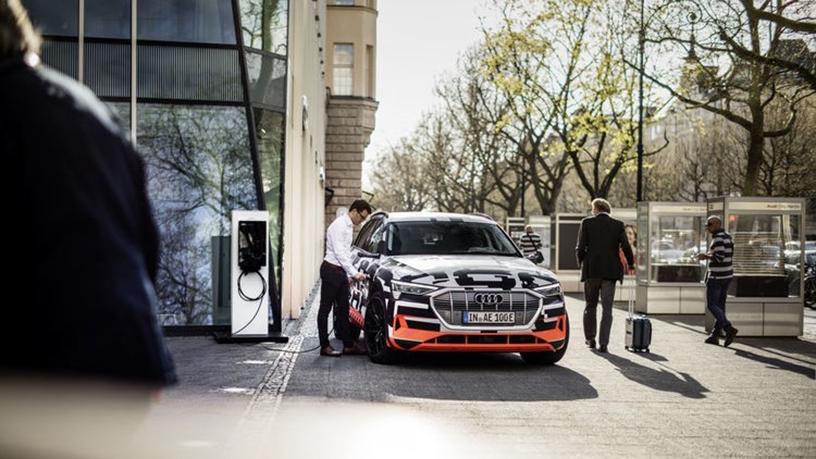
Audi, in partnership with SMA Solar Technology and the Hager Group, has created home charging stations for smart homes.
These connect electric cars to the user's home infrastructure and make use of sustainable photovoltaic power, or solar power, as it is commonly known.
Audi unveiled its first all-electric car earlier this year in Switzerland at the Geneva Motor Show: the Audi e-tron. The vehicle is set to be available in some markets by the end of the year and roll out globally over the next two years.
The intelligent power system is meant to pre-empt a problem many fully electric car owners currently face: a lack of easily accessible charging stations.
In SA, the only electric cars available are from Nissan and BMW. These companies have teamed up to install fast-charging stations at dealerships which are free for electric car owners to use; however, they have to wait at the dealership while their car charges. The other option is to charge at home using a long cord which can be a costly, inconvenient and faulty.
Audi hopes to ship its intelligent home charging system with the e-tron when it goes on sale.
The system offers various solutions to charging electric cars at home. The standard compact charging system enables charging with an output of up to 11kW. There is also the option to connect a second charger which doubles the output to 22kW.
The charging system connects with the infrastructure via the home WiFi and, in conjunction with a home energy management system (HEMS), enables intelligent charging functions.
According Sustainable Now, a HEMS is a technology platform comprising both hardware and software that allows the user to monitor energy usage and production, and manually control and/or automate the use of energy within a household; a system often required for a home to be considered 'smart'.
One of the smart functions of the charging system include the ability to use variable electricity tariffs to charge the Audi e-tron. This means the system can be set to charge the car when electricity is less expensive, at the same time making sure the car is full when it knows the user will need the vehicle.
It gets this information either from the HEMS or from information the customer enters into the myAudi portal.
The myAudi portal and myAudi app let users check their individual charging statistics and charging progress. They can see charging times and the amount of electricity charged, as well as information about the corresponding costs.
Additionally, if the home is equipped with a solar power system: "The user can optimise the charging process to prefer the electricity generated by the system for charging the Audi e-tron," says the car manufacturer in a statement.
"The electric SUV does this by considering forecast phases of sunshine and the current flow of electricity at the home's connection point to the public grid."
"We want an electric car that fits seamlessly into the intelligently connected home, to provide genuine added value for the customer. That is why we have teamed up with the two leading suppliers of home energy management systems, the Hager Group and SMA Solar Technology. That brings maximum charging convenience," says Fermin Soneira, head of product marketing at Audi.
Share